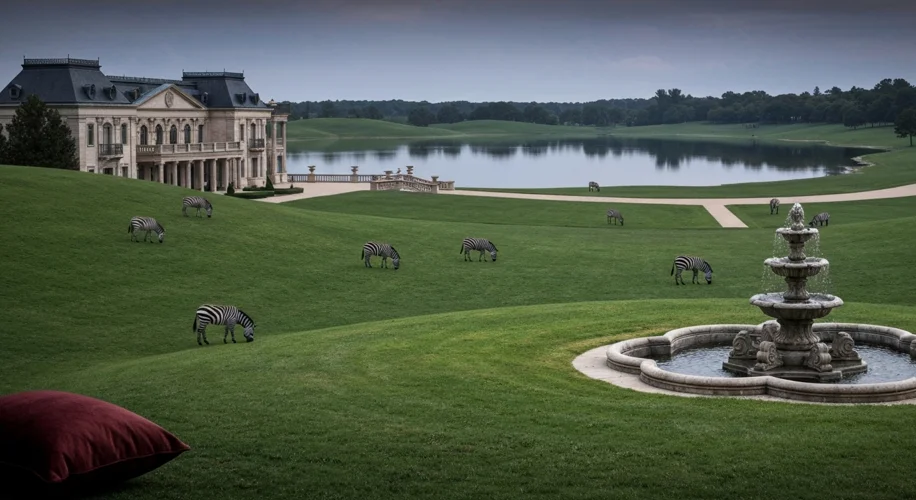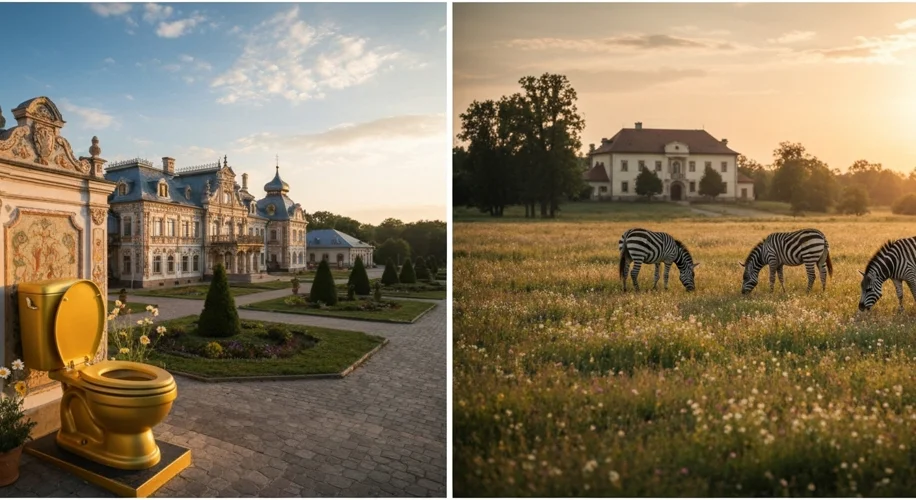In the annals of history, the display of excessive wealth and power by leaders often serves as a stark reminder of the chasm that can form between the rulers and the ruled. Today, as we observe the lavish summer residence of Hungarian Prime Minister Viktor Orbán, complete with its exotic zebras, it’s impossible not to draw parallels to another era of ostentatious display: the reign of former Ukrainian President Viktor Yanukovych.
Orbán’s sprawling estate, nestled on the shores of Lake Balaton, has become a focal point of public scrutiny. Beyond its sheer opulence, the presence of zebras, animals native to Africa, in the heart of Europe has sparked a particular brand of fascination and criticism. This isn’t merely about a taste for the unusual; it’s about the symbolism of power and the potential disconnect from the everyday realities of the populace. The acquisition and maintenance of such exotic creatures suggest a world apart, a bubble of privilege that can easily foster resentment and distrust.
To understand the gravity of such displays, we must cast our minds back to the Ukraine of Yanukovych. His Mezhhyhirya residence, once a sanatorium, was transformed into a personal fiefdom of unparalleled extravagance. Gold-plated fixtures, a private zoo, a fleet of luxury cars, and even a golf course were all part of this gilded palace. Yanukovych’s lifestyle became a potent symbol of corruption and elite excess, a narrative that ultimately contributed significantly to the public’s disillusionment and the seismic shifts that rocked Ukraine, culminating in the Euromaidan Revolution of 2014.

The historical context is crucial here. Throughout history, leaders who have flaunted their wealth have often faced the consequences. From the Roman emperors and their decadent banquets to the Bourbon kings of France and their Versailles, the ostentatious display of power has frequently been a precursor to unrest. The common thread is the perception of a leader prioritizing personal comfort and indulgence over the welfare of their people, especially during times of economic hardship or political instability.
Orbán, while operating in a different political landscape than Yanukovych, faces similar scrutiny. Critics point to the economic challenges faced by many Hungarians and question the appropriateness of such extravagant personal spending, even if funded through private means. The zebras, in this light, become more than just animals; they are symbols, loaded with the weight of historical precedent and the potential for political fallout.
Yanukovych’s legacy is a cautionary tale. His refusal to sign an association agreement with the European Union in favor of closer ties with Russia ignited widespread protests. The corruption and kleptocracy associated with his regime, symbolized by his opulent lifestyle, fueled the flames of rebellion. The eventual ousting of Yanukovych in 2014 was not just a political upheaval; it was a popular uprising against a system perceived as fundamentally corrupt and self-serving. His flight from the country and the subsequent annexation of Crimea by Russia and the ongoing conflict in eastern Ukraine are stark reminders of the profound consequences of leadership that loses touch with its people.
While Orbán’s situation is not a direct replication of Yanukovych’s downfall, the historical parallels are undeniable. The public’s perception of a leader’s lifestyle can significantly shape their political capital. The presence of zebras in a Hungarian summer residence, much like the gold-plated toilets at Mezhhyhirya, serves as a potent visual metaphor. It speaks to questions of accountability, transparency, and the enduring tension between private wealth and public duty. As history teaches us, such symbols, however seemingly trivial, can carry immense weight in the court of public opinion, often setting the stage for future reckonings.
The story of leaders and their extravagant displays is as old as civilization itself. It is a narrative woven through the fabric of history, reminding us that power, unchecked and untempered by empathy, can lead down a perilous path. The zebras on Orbán’s estate, grazing under the European sun, are more than just a curious sight; they are echoes of past indiscretions, a quiet whisper from history urging vigilance and demanding accountability from those who hold the reins of power.

